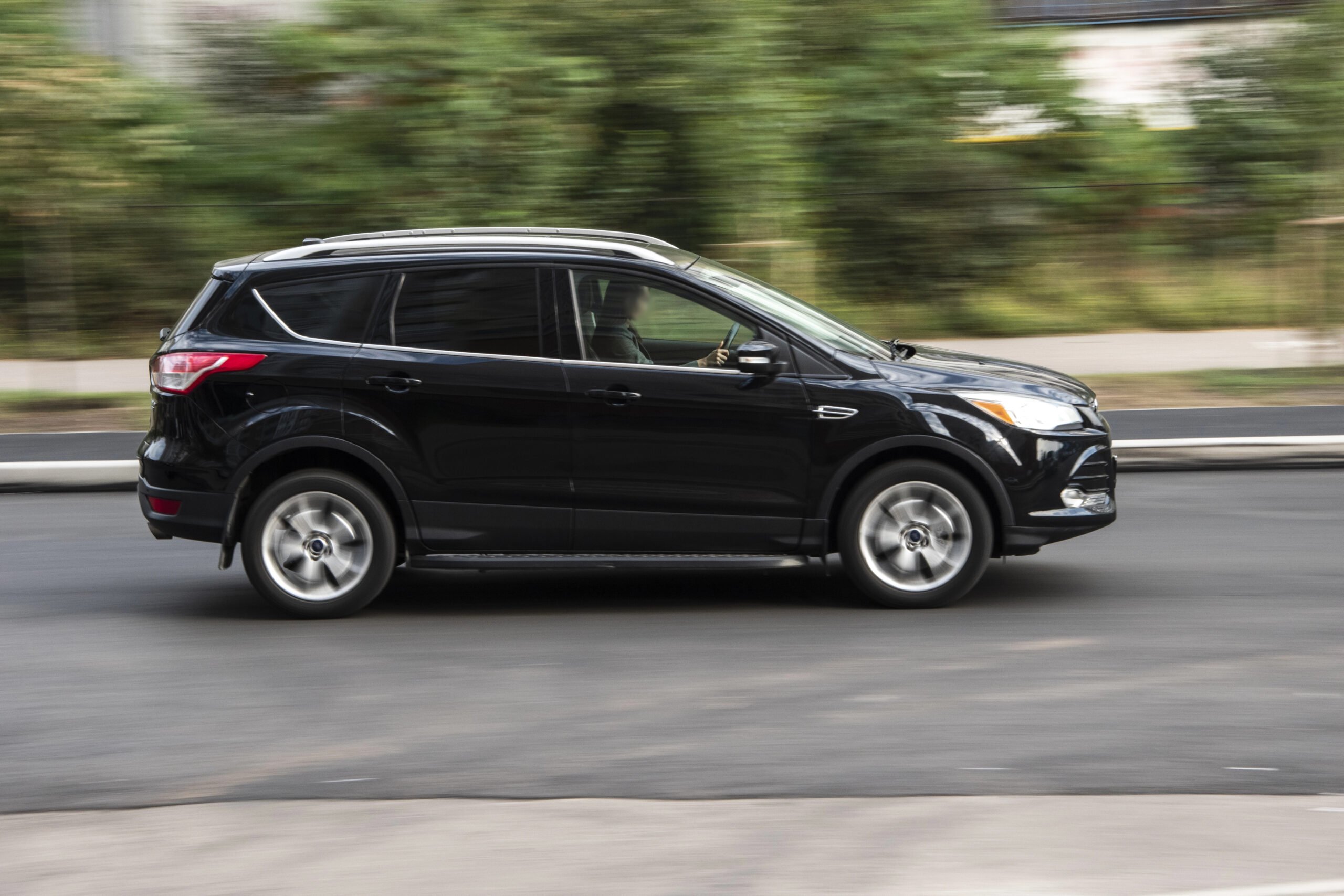The Ford Escape is one of the most popular crossover SUVs on the market, but there are a few model years—like the 2008 and 2014—that you should avoid at all costs.
Since its introduction, the Ford Escape has been a top-seller for Ford and the most recent redesign is generally loved by owners. But that doesn’t mean all model years are equally loved.
Worst years for the Ford Escape
2021
Problem points:
- Faulty fuel system
Ford has issued a recall for several 2021 Escapes due to issues with the fuel delivery system, which can cause the engine to stall. Some drivers have also reported electrical system issues in the hybrid model that can affect drive power—and drivers of both the gas-only and hybrid models have reported weak brakes.
Save yourself some money and hassle and go for a used, top-rated 2020 Escape instead.
2016
Problem points:
- Transmission
- Engine
- Steering failures
After taking a year off, the 2014’s transmission issues resurfaced in the 2016 Ford Escape. SUVs in this model year also suffered from occasional engine and power steering failures. Adding insult to injury, drivers complained of extremely noisy brakes—even when the vehicle was fresh off the lot.
2017
Problem points:
- Brake and engine issues
The 2017 Ford Escape continued to be plagued by the uncomfortably loud brakes found on the 2016 model. In addition, the brakes would sometimes become hard to press for no reason. Add to this issues with the engine stumbling and stuttering, and you have another unreliable model year for the Ford Escape.
2014
Problem points:
- Transmission
By all accounts, the 2014 Ford Escape is the worst one out there because of its main issue: the transmission. Transmissions are exceptionally expensive to fix, and this model year experienced everything from minor issues to complete vehicle shutdowns because of the transmission.
Key TakeawayThe 2014 Ford Escape is one you should avoid at all costs.
2013
Problem points:
- Electronic and mechanical issues
The 2013 Ford Escape was recalled 16 times by the National Highway Traffic Safety Administration (NHTSA). The most common issues were with electronic systems including GPS, radio, and backup camera/sensor malfunctions.
Common mechanical issues included leaks, faulty catalytic converters, and exhaust system issues. Combined, these make the 2013 Ford Escape another model year to avoid.
2009
Problem points:
- Loud engine noises
- Air and water leaks
- Axle-bushing malfunctions
The 2009 Ford Escape didn’t suffer from the 2008’s transmission failures, but it added a plethora of other issues to the list of problems that Escape drivers have had to face. From disturbingly loud engines to poor handling due to worn suspension, the 2009 Escape is one to avoid.
2008
Problem points:
- Transmission
- Steering system
- A/C system
The 2014 model year had the most expensive complaint, but the 2008 Ford Escape has more complaints than any other Escape year. Transmissions were an issue here as well, but so was the steering system—both of which can cause potentially dangerous vehicle failures.
Best years for the Ford Escape
2020
The fully redesigned 2020 Ford Escape is reliable, affordable, and fun to drive. Cylinder-deactivation features result in superior fuel economy in highway driving, but the model doesn’t lack for performance with its turbocharged engine.
The best thing? Ford made all of its award-winning driver-assistance features standard on all trims with this model year.
- Pros: Driver-assist features standard on all trims
- Cons: Expensive compared to previous model years
2019
For the 2019 model year, Ford made the Sync 3 infotainment system, keyless entry, push-button start, and one-touch power-windows standards on all Escape trims—a move that added convenience to safety and reliability.
- Pros: Increased standard equipment
- Cons: Less fuel efficient than previous years
2015
The 2015 Ford Escape is considered one of the best because of its impressive handling and powerful turbocharged engine options. As per usual, the Escape continues to offer its spacious interior, excellent cargo capacity, and superior safety ratings, too.
- Pros: Impressive handling
- Cons: Noisy brakes
Key TakeawayThe 2013 redesign equipped the Escape with a choice of three 4-cylinder engines that negated any previous model years’ performance issues.
2012
Ford Escapes are known for crash safety, and the 2012 model year is no exception. In addition, the 2012 Escape has one of the lowest operating costs of any SUV for that year due its superior fuel economy.
- Pros: Safety and fuel economy
- Cons: Comparatively high price for a used SUV
2011
The 2011 Ford Escape shares the same above-average safety ratings and spacious interior as the 2010. Though its fuel economy is not rated as highly, it’s still well above average for a compact SUV.
- Pros: Above-average safety ratings
- Cons: Occasional power steering loss
2010
With outstanding crash-test scores and above-average interior and cargo space, the 2010 Ford Escape is one of the best model years. Fuel economy for this model is well above par, whether you choose the gas-only or hybrid option.
- Pros: Exceptional fuel economy and safety scores
- Cons: Less-than-impressive handling
Key TakeawayThe 2010 Ford Escape is one of the most reliable and economical model years.
FAQ
-
How do I avoid buying an unreliable SUV?
-
How can I tell if the SUV I’m planning to buy is reliable?

Sarah Gray is an insurance writer with nearly a decade of experience in publishing and writing. Sarah specializes in writing articles that educate car owners and buyers on the full scope of car ownership—from shopping for and buying a new car to scrapping one that’s breathed its last and everything in between. Sarah has authored over 1,500 articles for Jerry on topics ranging from first-time buyer programs to how to get a salvage title for a totaled car. Prior to Jerry, Sarah was a full-time professor of English literature and composition with multiple academic writing publications.

Kathleen Flear is an expert insurance writer and editor who previously lead up Jerry’s editorial team as director of content. Kathleen empowers drivers to make smart car ownership decisions through best-in-class articles on insurance, loans, and maintenance. Prior to joining Jerry in 2021, Kathleen served as managing editor for a team of SEO content marketing professionals at Article-Writing.co and worked as a freelance writer and editor for a range of digital publications, including Chicago Literati magazine and Golden Words. She earned a bachelor’s degree in English language and literature from Queen’s University, and a master’s degree in creative writing and fiction from Sierra Nevada University.








